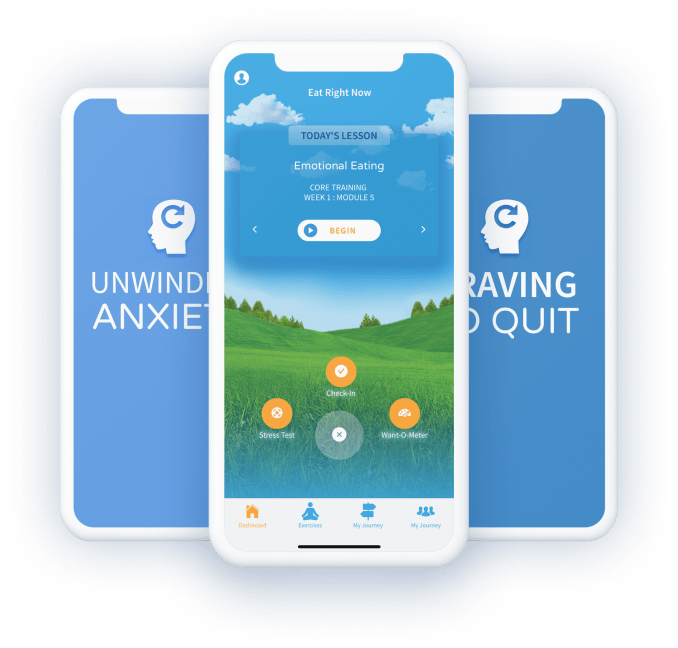Maybe you’ve bummed a cigarette off a friend as you stood outside in the freezing weather as you waited for a bus. You may only indulge in smoking cigarettes occasionally, or casually.
On the other hand, maybe you’re someone who began smoking in a casual way, but it transformed into a constant craving for another cigarette — and that craving became the monster it is today that you can’t seem to defeat. You’ve tried quitting before, several times, but it only leaves you feeling sick, irritable, angry, and desperately craving another hit of nicotine.
What Is Habitual Smoking?
Habitual smoking is both a physical and psychological addiction. On one level, nicotine is a highly addictive chemical that can cause very real withdrawal symptoms when it’s suddenly discontinued. On another level, there are many psychological components that go into smoking such as the ritual of the activity, the emotional comfort a hit of nicotine brings, and the camaraderie with fellow smokers as well as its association with your favorite locations. It’s hard to untangle it all and just put the cigarette down. But it’s necessary to quit — for your health, and possibly for your life.
Smoking Statistics in the United States
It’s common knowledge that smoking is not good for your lungs. It can lead to lung cancer and death in the most severe cases, and it can worsen conditions like chronic pain and asthma on the milder end of the spectrum. Why, then, do people still smoke? It’s certainly an addictive habit — but there are also those people who prefer to turn a blind eye to the statistics and knowledge that may make them rethink the dangerous habit. According to the Centers for Disease Control and Prevention, habitual smoking is responsible for or contributes to the following statistics:
- As many as 480,000 people die every year from smoking-related diseases (one in five adult deaths)
- About 14% of adults are current smokers
- 16 million adults in America have a disease that can be considered “smoking-related”
- Men smoke more than women at 15.3% and 12.7%
- Cigarette smoking tends to decline with the level of education completed: 35.3% of adults with GEDs smoke and 4% of adults with graduate degrees smoke
Why Is Quitting So Difficult?
If you’ve ever known a smoker to hear of a family member being diagnosed with lung cancer, heart disease, or another life-threatening condition and light up a cigarette in response to the stress, you may have been shocked — but anyone who has been a smoker or quit smoking may smile and nod at the familiar cognitive dissonance. We all know that smoking can cause cancer, but smokers (and others struggling with addiction) may go out of their way to justify the activity. They may say that the doctors were wrong, the statistics are not complete, or that they personally may be an exception. The truth is that everyone who smokes is vulnerable. They may not all get cancer or die from their habitual smoking, but it certainly does not benefit their health.
As you can see from the statistics and psychology behind the addiction, quitting smoking is no easy task. One in five people in the United States die from a smoking-related cause — so why do these individuals who are current smokers not just give it up? It’s different for everyone, of course, but two main reasons are the physical addiction and the emotional component that goes along with it.
How To Quit Smoking Starting Today
Perhaps you’ve already decided you want to quit, but you don’t know how to start. Consider the following tips for smoking cessation whether you’re a first-time quitter or you’ve been trying for a while.
1. Identify What You Enjoy About Smoking
What do you like about lighting up a cigarette? Is it the fact that you can be alone for five minutes with your nicotine and your hot coffee before confronting the rush of a workday? Is it the fact that it suppresses your appetite, so you don’t have to diet? Are you self-medicating for anxiety, depression, or another mental illness? Or, do you associate smoking with hanging out with your group of friends?
By uncovering the psychological reasons why you hang onto smoking even though you likely know it’s not good for your body, you can begin to identify what mental benefits you’re getting from smoking — whether it’s the comfort of a ritual, a substitute for anti-anxiety medication, or a meditative break from mental chaos — and try to work these things into your everyday life instead of relying on your cigarettes to provide them for you. It’s easier said than done, of course.
3. Download a Smoking Cessation App
Have you tried hypnosis podcasts? Meditation? If you’re the type of person who enjoys hacking your body or your brain, consider Dr. Jud’s To Quit® smoking cessation app. You’ll get access to step-by-step guidance, video lessons, and mindfulness exercises as you learn how to channel your brain’s power into helping it rather than harming your body. You’ll also be able to participate in weekly video calls with Dr. Jud and receive support from a community of like-minded people who want to take control of their quitting journey into their own hands.
3. Understand That It May Take Time
You’re likely aware that quitting an addiction may be a simple choice, but it’s often not an easy process. It’s important to stay in touch with mentors, peers, and those around you who love you and support you. If they don’t understand how difficult it is for you to quit smoking, try to educate them on the physical and psychological processes that may be making it more difficult for you to just drop the box of cigarettes and walk away forever.
Get In Touch
Quitting habitual smoking is hard, but it can be done with patience, persistence, and the right tools. Download our To Quit® app today to get started, and be sure to reach out if you have questions or concerns you want to share. We look forward to helping you on your quitting journey!



